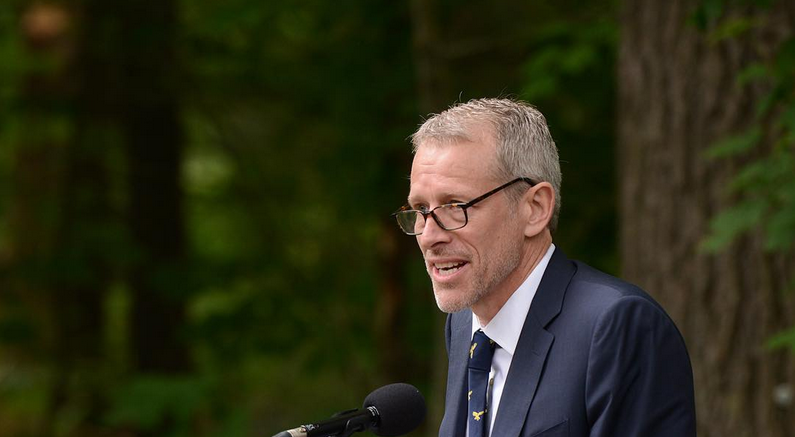Tilson: 'One would think my returns would be getting better with time'
Value investor Whitney Tilson, the founder of Kase Capital, sent a candid email on Tuesday about why he and others have underperformed in a raging bull market.
“This is my 19th year of professional investing. Given that this is an experienced-based business, one would think my returns would be getting better with time, but in fact the reverse has been true,” Tilson’s email began. “It is thin gruel that I’m in good company – it seems like every day I read about another iconic money manager who’s hit the skids.”
Tilson noted his underperformance came as two significant developments changed the market—the growth of indexing and the rise of the quants.
The rise of indexing
“I do not think it is a coincidence that this has happened at the same time as: a) the rise of indexing (chew on this staggering statistic: in the last three calendar years, investors sank $823 billion into Vanguard funds, 8.5 times as much as the net $97 billion added to every other mutual fund combined); and b) the rise of supercomputers/artificial intelligence.”
This indexing boom and the exodus into passively-managed index funds from actively-managed funds has gotten increasing amounts of attention in recent months. One of the concerns is that market participants are putting their money into broad market ETFs instead of buying individual equities.
“Regarding the former, indexing creates a cycle in which money pours into the biggest mega-cap stocks, driving them (and the indices) higher,” Tilson wrote. “This causes active money managers (who tend to own smaller stocks) to underperform, causing their investors to redeem, thereby forcing the active managers to sell their stocks, driving them down, further widening the gap with the indices, leading even more people to throw in the towel and embrace indexing. Lather, rinse, repeat.”

The rise of quants
It’s not just the growth in indexing that’s creating friction for active managers. The rise of quants has made it increasingly difficult to keep up.
“As for the rise of supercomputers/artificial intelligence, in the past 5-10 years, computers have surpassed humans at such enormously complex challenges as chess and driving a car. Is it unreasonable to think they’ve done the same for stock picking (at least in a complacent market)???”
“The question for an active manager is how to play this?” Tilson wrote. “I am not willing to suspend my valuation principles and chase performance, which is what I believe a lot of human beings, index funds, and high-powered supercomputers are doing.”
There are opportunities out there ready for inspection and purchase. He said that he’d look for “undiscovered stocks” or situations where he believes he has an edge by knowing one or more of the key people involved. Some examples include: Mondelez (MDLZ), CSX (CSX) and Pershing Square Holdings (PSH.AS).
This bull market has been difficult for fundamental, bottom-up stock pickers like Tilson. He doesn’t expect it to last forever.
“I don’t know when this bull market will end – but all of them eventually do…and when it does, we will be ready. As Buffett wrote in his latest annual letter:
“Charlie and I have no magic plan to add earnings except to dream big and to be prepared mentally and financially to act fast when opportunities present themselves. Every decade or so, dark clouds will fill the economic skies, and they will briefly rain gold. When downpours of that sort occur, it’s imperative that we rush outdoors carrying washtubs, not teaspoons. And that we will do.”
Kase Capital was down 4% year-to-date through the end of March versus the S&P 500’s 6.1% gain, according to a performance report. The average hedge fund was up 2.97% in that time period, according to the Barclay Hedge Fund Index.
—
Julia La Roche is a finance reporter at Yahoo Finance.
Read more:
